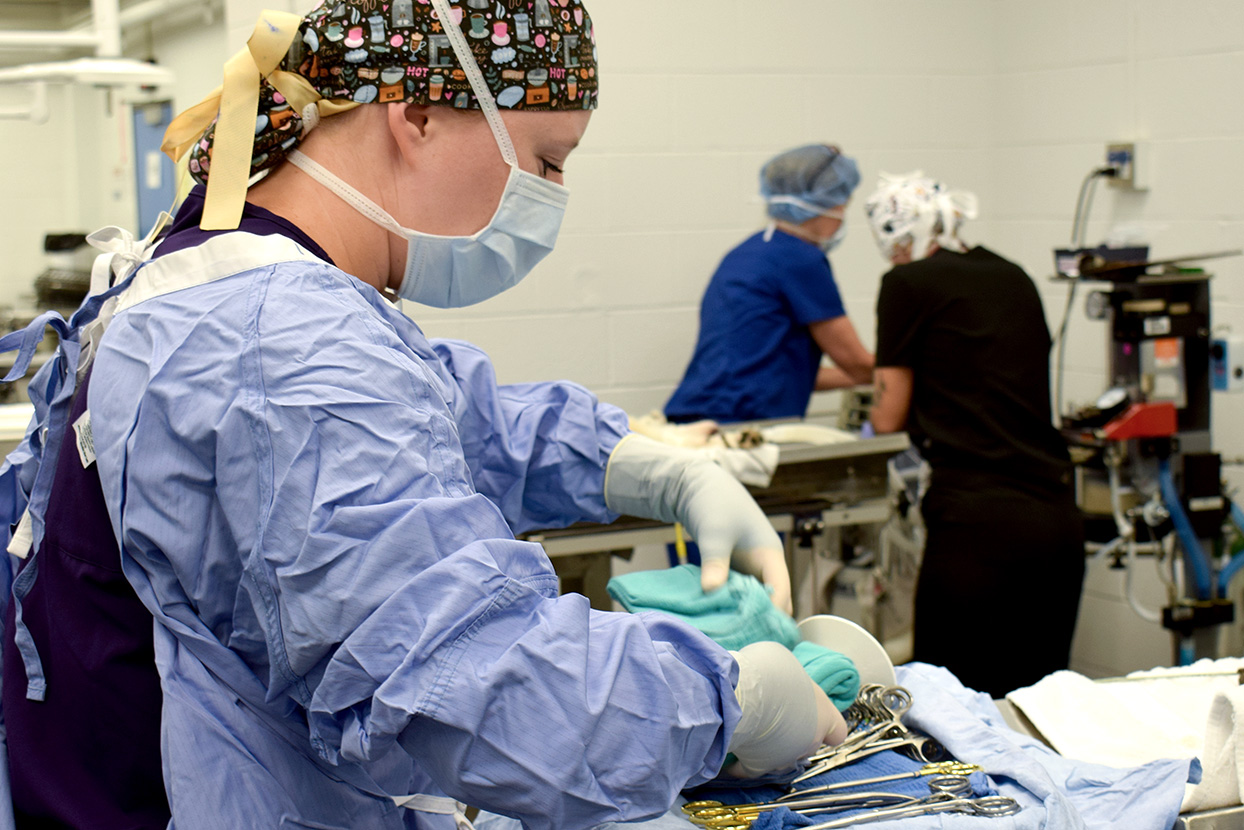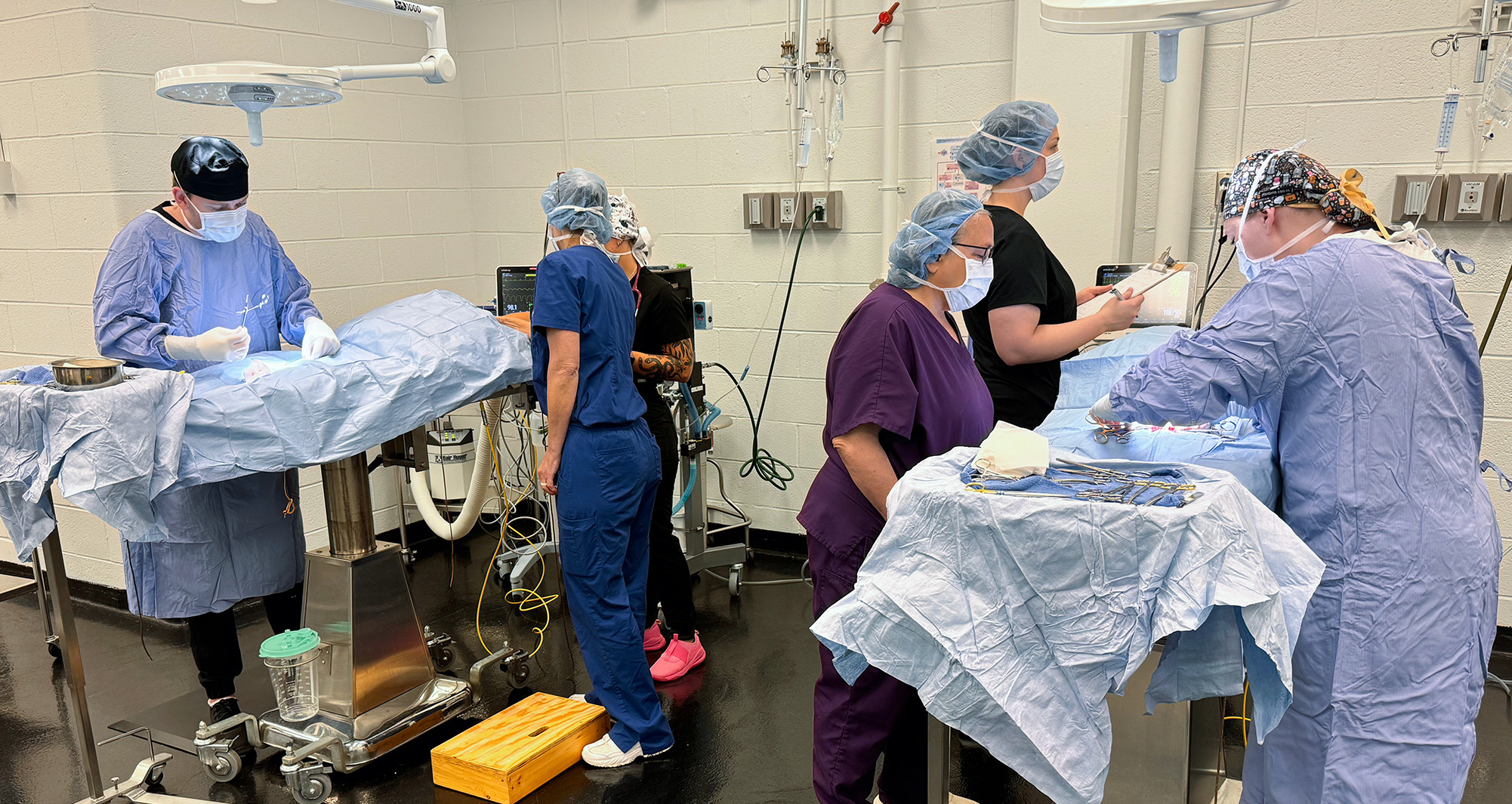 In their third year, Iowa State veterinary students learn the skills necessary to perform spays and neuters on cats and dogs.
In their third year, Iowa State veterinary students learn the skills necessary to perform spays and neuters on cats and dogs.
In that course, students spend an entire semester learning the skills required to perform such procedures. However, due to time limitations, students only have a few opportunities to do a spay or neuter.
That changed this summer for eight fourth-year students in a new clinical rotation, “Community Outreach Elective Surgery.”
“This rotation allowed for real world practice and development of skills for us to be more efficient and practice ready,” said Amanda Dilbeck, one of the eight fourth-year students enrolled in the clinical rotation.
Instead of one patient a week, Dilbeck and her fellow students were seeing multiple patients in a day.
“You have to be efficient with your time and cultivate your skills without compromising patient care,” Dilbeck said. “This is important because these skills are what will be expected of us in most practices.”
While in junior surgery, Dilbeck was not assigned to perform a dog spay. That changed with this rotation.
She says by the end of the two-week course, she had done four dog spays and each one was performed on a patient that was a different size and age.
“Each spay was a different experience,” she said. “Doing so many different dog spays definitely helped me feel more confident as I know I will be performing spays frequently in the small animal general practice I will join after graduating.”
The course is designed to enable students to perform multiple surgeries in the morning with their afternoons spent doing new patient intakes and completing records. The schedule mimics what many will be doing in a small animal practice. Additionally, students performed dentistry procedures on dogs and cats as well.
“It was great to work with everyone as a team,” Dilbeck said. “We got in, got out, and had a great time helping pets get to live happy and healthy lives. “This course allowed me to improve my surgical skills and learn to be adaptable to the patient, not the procedure.”
September 2024

